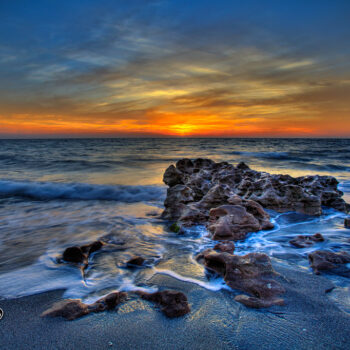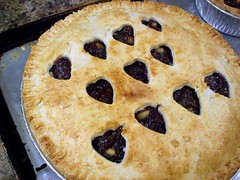By now it must be old news that the environment is in peril and plenty of animals are extinct or endangered. It’s kind’ve saddening to hear about some species on the brink of losing existence on the Earth, but after a while it might just be somewhat normal. After all, this is what we’ve grown up in. If I’m not making sense, imagine what life will be like once the economy is back in full swing; it will probably feel wrong to not be frugal. However, animals aren’t an economy; once they’re gone, they don’t come back (unless some scientific miracle allows us to return extinct species, but thus far has been a failure). In order to spread some awareness and build a little bit more care for the environment and animals, I’ve decided to compile a list of animals that we’ve experienced fairly often as Mainers that are on their way out.
In kindergarten or some early grade, your class may have gathered caterpillars of the monarch butterfly to watch them form a chrysalis and hatch as a butterfly, completely different looking than the caterpillar it started from. If you’re not one for names, they’re the butterflies with the brilliant orange wings, and the caterpillars are striped in all sorts of colors, including blacks, whites, and yellows. These guys have a huge migration annually that brings them all into about an acre of woodland in Mexico, which is about the size of a football field. In 1996, there were enough to occupy 46 acres. With every Winter, lower and lower numbers are found in the Mexican forests, reaching new record lows every time. Smaller numbers are contributed to habitat destruction and climate change (essentially, more extreme weather making, making winters colder and harder for the butterflies to handle). Because the butterflies eat nectar from flowers, they will gather pollen and transfer it from plant to plant. No butterflies means lower reproduction in plants, meaning less flowers and fruits, which can be disastrous to farmers and gardeners. Bumblebees are also dying off at extreme rates, and similar effects can be expected.
At evening, you might be able to catch a glimpse of a bat or two zipping about above, snagging mosquitos and dragonflies out of mid-air using echolocation to find their prey. Recently, a disease known as white-nose syndrome has developed among bats, which is a fungal infection that has a mortality rate of 95%. It’s an extremely infectious disease, spreading throughout the US and Canada, Maine included. The disease is very difficult to understand, but it is guessed that such rapid transmission is due to human activity between caves, transporting the disease from a cave to cave, killing off huge populations of bats at a time. If bat populations were to decrease too much, we will see a huge increase in mosquito populations and mosquito-related diseases.
Puffins are iconic to Maine, but are currently listed as endangered under Maine’s official endangered species listings. Puffins are semi-aquatic and capable of swimming underwater to collect numerous fish at a time in its bill, which it then consumes for itself or takes to feed their young on one of a few islands off of Maine’s coast. Puffins are endangered due to accidental catching in fishing nets, human establishment on nesting islands, and depletion of food due to the seafood industry.
The last animal I want to cover is one that’s probably sadder to see go than any of the previous listed. Fireflies are declining worldwide, and are one of the few insects that we know of that sport bioluminescence, the ability to produce light on one’s own. Our childhood summers were never complete without making a firefly lantern at some point in time, they’re just so cool and not to mention a brilliant sight to see in the middle of the night. Their decline worldwide can be due to a multitude of factors, between people catching too many (assuming they aren’t released before they die), habitat destruction, and light pollution, where fireflies get confused from lights in the night and mistake them for other fireflies, sometimes resulting in their deaths at a bug-zapper or simply sticking with a large light bulb its whole life and not reproducing. I would hate to see these guys go, and would love it if my children could have the same enjoyment we had in seeing them and catching them, because they are truly are iconic to our childhood summers. It may be opinion, but I feel that most can agree we’d rather see them floating about in the night rather than in a museum exhibit.
As it stands, we’re currently in the sixth mass extinction the world has seen. We’re actually wiping off species faster than when the dinosaurs were killed off when a meteor the size of Mt. Everest hit Mexico, which is just insane. There are plenty of other animals endangered worldwide in much worse shape than any of the ones I previously described, and as far as habitats go, Maine is actually considered to be in good standing. Regardless, I want people to cherish what’s left and do what we can to protect it, because the world depends on animals, the environment, and a stable climate, and without it we’ll find that we were our own worst enemy, like removing Jenga blocks from the base, coring it until the tower that is Humanity can no longer stand. I don’t want that to scare anyone, but as far as I’m concerned, it should be in everyone’s interest to care for life forms beyond just ourselves, otherwise we have ultimately dug our own grave.









4 Comments
I love this. This piece is immensely informative while keeping the reader hooked. Experiences with some of these animals and insects is something that we can all relate to, and really motivates people to think more carefully about their actions. We humans are almost entirely detrimental to the environment around us, maybe next time we’ll think a little more before crushing a bug or cutting down a tree.
This really made me think in the right direction after reading this. This was very informative yet fun to read. I sadly know many people that do this and its sad. It really got me to stand up for these poor little creatures and stop people I know from from doing these kind of things. Our economy should be taking care of this and teaching people what is good and bad for the economy so it can stop. Hopefully they’ll start. Great job
This is horribly awesome. You kept me reading while informing me constantly. That’s good writing right there. I certainly care for all the species you listed her but like you, I find the fireflies to be the saddest loss of all. The little yellowish green flashes in the black of night are an integral part of summer. Without them summer nights would simply not be the same. Your title is ominous yet effective at warning readers that if we continue the way we are going we will lose the fireflies. Love this piece.
This helped me to get a better perspective on life. You did very well at getting your point across and I think it is sad but it must be said. You did awesome and I would love to hear more about this from you.